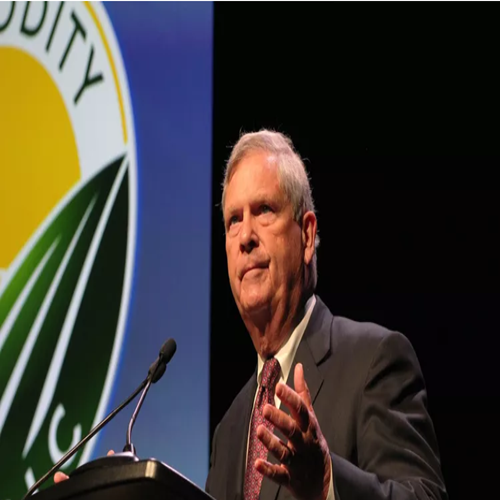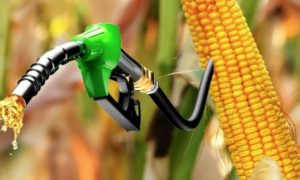Ethanol for aviation will get tax credits, Vilsack assures industry

Ethanol will be included when the Biden administration spells out eligibility for lucrative tax credits for sustainable aviation fuel (SAF), and the incentives will reflect the impact of climate-smart farming practices, Agriculture Secretary Tom Vilsack told ethanol makers on Tuesday. “We’re working very hard to make that happen, and I’m confident that it will happen.”
While it cheered the administration’s adoption of the so-called GREET model for calculating the life-cycle carbon emissions of fuels last December, the ethanol industry has become uneasy about updates in the model that are due by March. “Nobody knows what changes are being made and how those changes will affect the carbon intensity values of SAF made with corn ethanol,” said Geoff Cooper, chief executive of the Renewable Fuels Association.
Cooper and Vilsack spoke at the RFA-sponsored National Ethanol Conference in San Diego. Cooper said 2024 would be “one of the most pivotal and consequential years the ethanol industry has ever experienced.” The industry seeks access to SAF credits of up to $1.75 a gallon, year-round sales of higher-blend E15, and a rollback of a proposed tail-pipe emissions rule that would ramp up sales of electric vehicles.
“The modified GREET model will either open the door for U.S. agriculture and ethanol makers to participate in this SAF market or it will lock out the highest-volume, lowest-cost feedstock and assure the failure of this administration’s ambitious SAF goals,” said Cooper. By some estimates, airlines would buy up to 36 billion gallons a year of SAF – more than twice as much as the biofuel mandate for cars and pickup trucks.
Vilsack, who described SAF as a boon for the rural economy, said “we fought hard and we were able to get a commitment from other agencies to use the GREET model,” which gives ethanol a better score for reducing carbon emissions than other models.
“I want to assure you that we are working hard, even as early as this morning, on working to make sure that as we create these (SAF) incentives, that they include room for climate-smart agricultural practices, which is going to make it easier for that which we grow and raise on our farms to be used as feedstock for sustainable aviation,” he said, “and make it easier for those of you who are in this business to be able to qualify for the various incentives.”
Vilsack said he was confident that in 2025, E15, a richer blend of ethanol into gasoline than the traditional 10%, would be available nationwide all year. Waivers are likely this summer for E15, he said. At present, summertime sales are banned in two-thirds of the country under air pollution laws.
Year-round E15 “gives ethanol a chance for modest growth in an otherwise declining gasoline market,” said Copper. The ideal solution would be for Congress to pass legislation allowing sales throughout the year rather than summer-time waivers.
Ethanol makers produced 15.6 billion gallons of the renewable fuel in 2023, the most since 2019, before the pandemic. About 35% of the U.S. corn crop is issed in making ethanol. There are 198 ethanol refineries, mostly in the Midwest and Plains states, with an annual capacity of 17.95 billion gallons a year.
The RFA presented is annual Industry Award to Vilsack after his speech at the conference.
Source Link: https://www.agriculture.com/ethanol-for-aviation-will-get-tax-credits-vilsack-assures-industry-8597874














